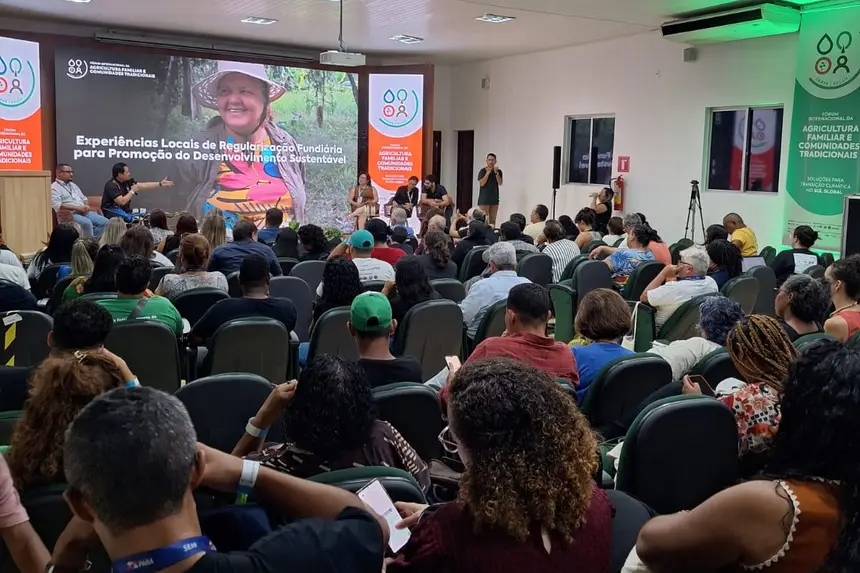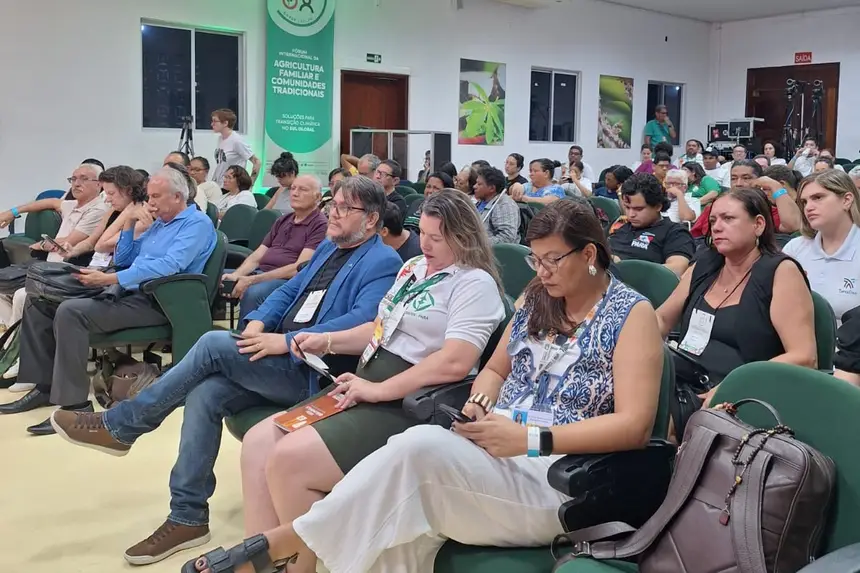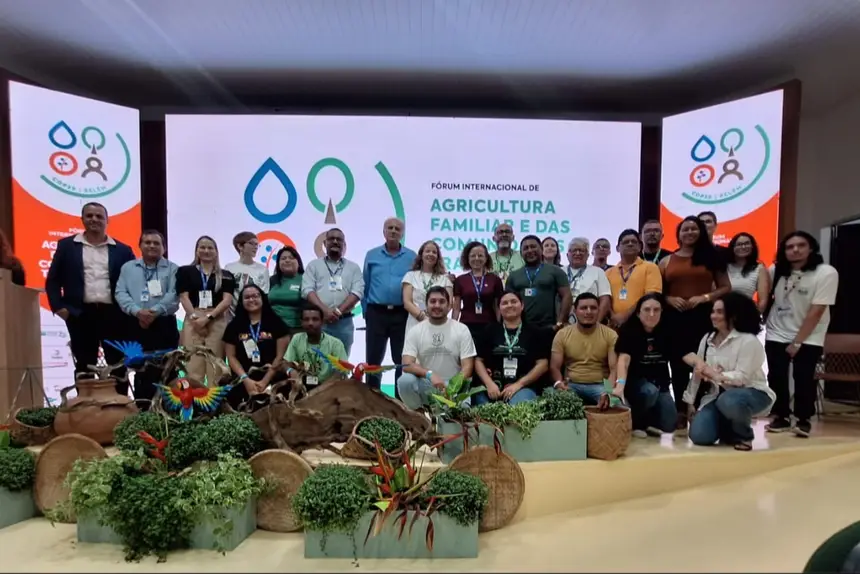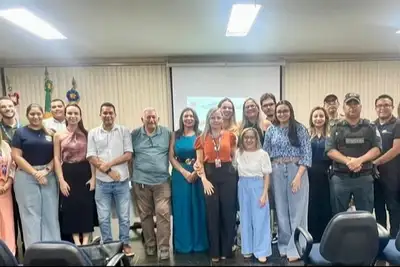International Family Farming Forum gathered 1,200 people to discuss sustainable solutions for forest production
Farm workers arrived in caravans from all over Pará and filled the auditorium during the five days of programming at the Agrizone space
The launch of the book 'Technical Assistance and Rural Extension in Pará – A panorama of reality' concluded the programming of the International Family Farming Forum in Pará on Monday night (17), after five days of intense activities with 70 panelists and participants from 11 nationalities. The event brought together researchers, public managers, parliamentarians, national and international organizations who directly engaged with farm workers on sustainable solutions for productive practices and forest preservation. The meetings took place at Agrizone, a space located at Embrapa and part of the Conference of the Parties to the United Nations Framework Convention on Climate Change (COP30).
Among the main themes of the 14 discussed in the program were climate transition, restoration of degraded areas, land regularization, financing, and rural technical assistance. Representatives from various state agencies participated in the discussions and presented the public policies and instruments developed by the Government of Pará, on various fronts, to support families of family farming workers and traditional communities, especially in facing the effects of the climate crisis.
"It's not just talk. The State Government has a climate change adaptation policy. The State has an action plan called the Amazon Now Plan (PAA), which has almost 20 instruments to make these policies happen," declared the head of the State Secretariat for Family Agriculture (Seaf), Cássio Pereira, who reinforced Governor Helder Barbalho's guidance to build a new model of rural development based on the living forest, production with agroforestry. He highlighted initiatives such as the low-carbon production program, payment for environmental services program, sustainable livestock program, and other actions that support small producers and care for the environment.
Juliana Machado came from a rural community in Igarapé-Miri to participate in the forum with the intention of bringing new knowledge to improve rural work. "I came to learn, to pass on to the people, to take care of our river. Without the forest, we have nothing," said the farmer, who works in açaí production and also in fishing and handicrafts.
On Monday, the director of Sustaining Cultures from Australia, Karla Nunes Penna, and the representative of the Mae Fah Luang Foundation, Ann Supatchaya, from Thailand, participated in the panel 'Local experiences of land regularization for promoting sustainable development'. They reported experiences of resilient communities that managed to overcome difficulties, restore, produce, and preserve the environment in Thailand and Australia. The debate included the participation of the president of Iterpa, Bruno Kono, who spoke about the progress of land regularization work in Pará to ensure legal security and enable access to essential services, financing programs, and other benefits.
Application - During the forum, participants learned about the Ater Paid'Égua, an application developed by the Technical Assistance and Rural Extension Company of Pará (Emater) to provide virtual Technical Assistance and Rural Extension (Ater) to family farmers in hard-to-reach areas. The initiative is supported by Ipam (Institute for Environmental Research of the Amazon). The system includes a registry of producers, allows quick consultations and support generation, scheduling visits, and status checks, among other services to facilitate the assistance to the rural population.
Book - Another important tool presented at the forum was the book 'Technical Assistance and Rural Extension in Pará – A panorama of reality', which comprises a mapping of the situation of family farming in Pará, based on the identification and access to a database of more than 400 institutions linked to farm workers. The survey will serve as a basis for the construction of the State System of Technical Assistance and Rural Extension.
During the five days of programming, solar energy projects, training for women in the field, connectivity, workforce training, social mobilization, and technical advisory were also presented at the forum, with positive results in traditional communities and remote areas. From this shared knowledge, the expectation is to integrate efforts with research institutes, social organizations, and partnerships with national and international companies and institutions to expand this type of initiative that ensures sustainable economic development within the forest.
The International Family Farming Forum is organized by Ipam, Seaf, and the State Secretariat for the Environment and Sustainability (Semas), with institutional partners Hydro, Fetragri, Fetraf, CNS, Malungu, Adepara, and Emater. The event also received support from the Climate and Society Institute (ICS), German Cooperation in Brazil, GIZ, Natura, Symrise, Embrapa, Mapa, MDA, and the Government of Brazil.












